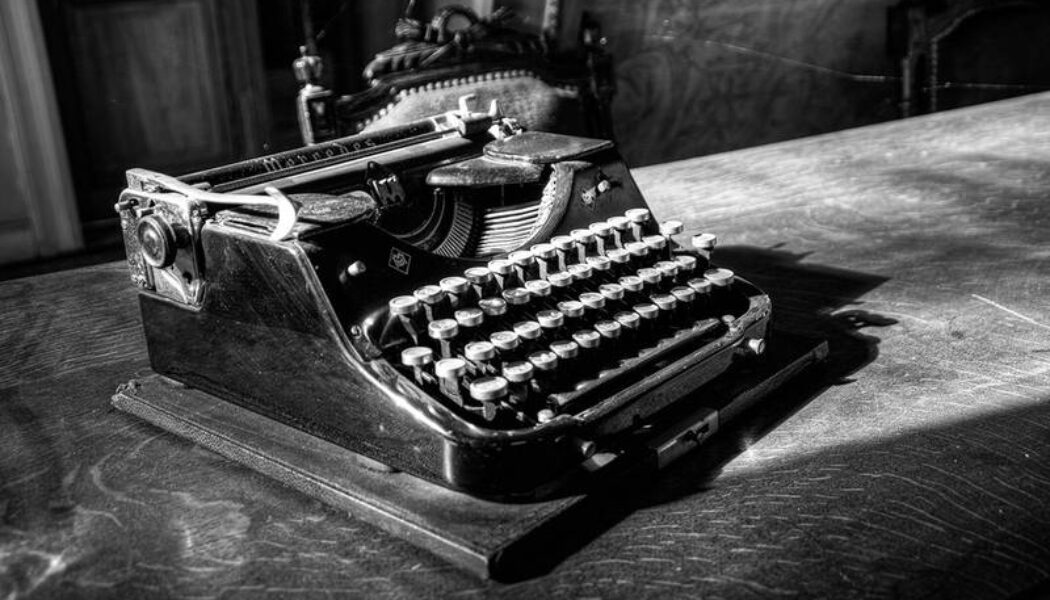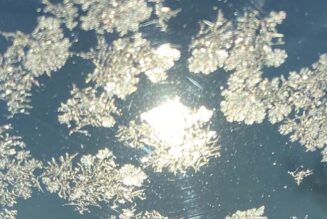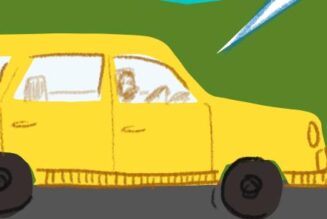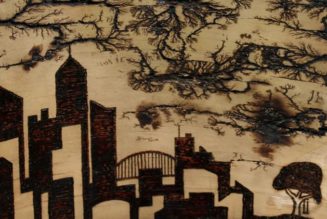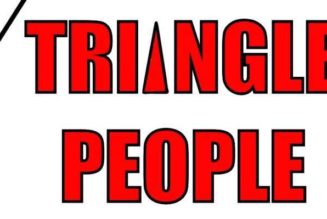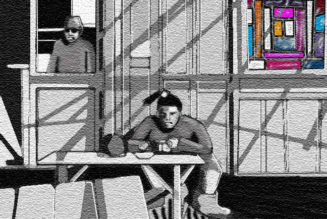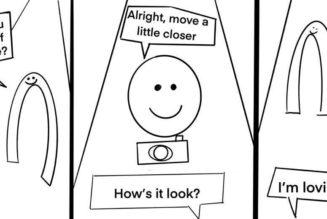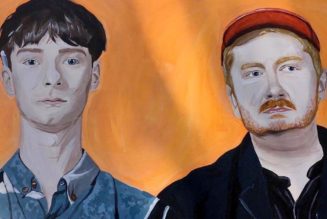“The Yellow Flippers, or If I Can Smell History in a Garage Sell, Then I’ll Write a Poem about It”
by John Dorroh
I.
I found them, these canary-yellow flippers,
years before a film of chlorine dust
had permanently coated their surface like
a thin dead skin. I’d swum through rough-edged
lanes of cabbage-patch dolls, skateboards with three
wheels, and rickety wooden ladders; worn-out
Tupperware bowls with missing lids, 70’s casserole
dishes, and leather-elbowed cardigans; limp cardboard
boxes of molded National Geographic and Look,
a Remington Rand typewriter, fatigued overalls.
They lay on the grass, begging me to take them home.
The rubber strap of the mated goggles disintegrated
In my hands, but the flippers were solid and a good fit.
One dollar and a story from his grand-daughter.
“He wore these until he couldn’t walk,” she said.
“He loved swimming, gliding across the sparkling waters
for hours. Met my grandma at the city pool. You can
have them,” she said. “Do you plan to use them yourself?”
II.
I felt my feet slide into history, his heels snug
as if my own. I’d grown new appendages, sitting on the edge
of the pool, ready to submerge my body into his blood.
I shot half-way across the pool like a dolphin, the flippers
as flexible pistons, propelling me across the water,
defying gravity, feeling his shins in mine, our upper legs
as one.
“You’re cheating,” said the fish in the next lane. “No one
swims that fast,” he said. “I took my goggles off, held them
high above my head, and winked.
“I know.”
“Tree as Teacher”
by John Dorroh
When you described the trees coming into winter as bruised,
I perceived it as a sweet flash of light, photons and waves articulating
an image that made me cry. Tall tree trunks on a bronzed mountain ridge
rising up across the creek bottom like an ancient reptile, stretching up, up,
100 feet? I don’t know. But they look sad, like someone has died.
I stand as tall as I can these days, feeling spent with change. Ten years ago
I moved a tree with a hug and gritted teeth. I flipped a boulder with my bare hands
and lifted a fallen tree off of the trail. I challenged black bears to cross my path,
and when they occasionally spotted me, they ran like sissies.
I can feel you tree, the better years of your life having evaporated into
the smoke of time; how your leaves fall sluggishly these days, the struggle
of staying normal, being counted in the tree census, claiming your space
on the lip of the ridge, leaning ever so closely to a dive into the stream
to finish you off.
“Biscuit Baker as Neurosurgeon”
by John Dorroh
To understand the beauty of a biscuit
you must build it from the inside out.
Memorize the recipe and stick to it like it
matters because it does. Baking is a delicate
science, as much as neurology. One slip
of a finger can result in transfigurations
that can wipe out an entire generation. Fill
a scared bowl with flour and make a well
that can accommodate a standard baseball,
and sprinkle from a measuring spoon the
baking soda and salt. The lard should be cold
and cut into one-inch cubes. Use your hands
to massage the mixture until it yells for
buttermilk and love. Put your fist into the
belly of the bowl and begin to squish-squish
it all together. Your oven should be at the
highest setting, screaming hot like the surface
of the sun. The neurosurgeon knows
when the blood flow is just right and can release
the pressure to help vessels reconnect.
You will also know when the dough is ready
for shaping into biscuits and pop them
into the belly of the oven. Brush with melted
butter and pray that you have enough to go
around twice.
John Dorroh – bio
John Dorroh was born with a pen in his right hand. “I’ve always written,” he said. “My love of writing was fostered by my high school senior English teacher, Paul Ruffin. He demanded good writing on a regular basis. I wrote my first chapbook, Thin Man’s Lights, when I was 17, as a student of his. Although it wasn’t published, it served as a template for persistence.” His poetry can be found in about 90 journals, including Ephemeral Elegies, Ponder, Kleksograph, Feral, and Plum Tree Tavern.
John’s work is also included in the just released Sixth Issue of Feral: A Journal of Poetry and Art.
